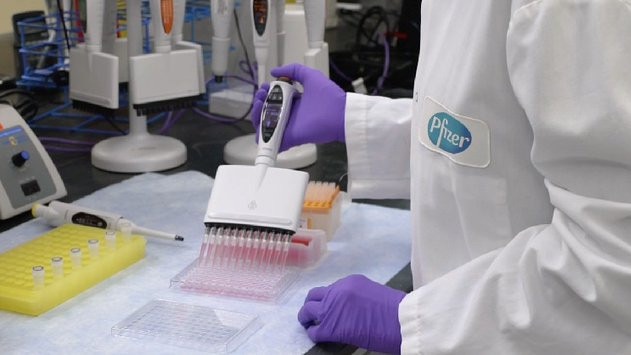Pfizer COVID-19 vaccine faces storage, transport problems
With Pfizer’s COVID-19 vaccine requiring storage at minus-70 degree temperatures, airlines face problems bringing it to Australia.

Australia has access to 10 million doses of the Pfizer BioNTech vaccine, but faces a problem in how to get the vaccine safely into and the around the country.
The vaccine requires long-term storage at minus-70 degree temperatures, with hurried discussions among airlines, freight companies and governments around the world now taking place on how much dry ice and deep freezers can be safely accommodated on various aircraft.
Airlines have strict limits about dry ice because it produces carbon dioxide and there are estimates that only around one-tenth of a plane’s cargo space could accommodate the vaccine.
While the Pfizer BioNTech vaccine is relatively easy to manufacture, it is difficult to store — although BioNTech owner Uguar Sahin believes the vaccine could be safely stored for several days in a refrigerator once it is taken out of deep freeze.
UPDATE: We are proud to announce, along with @BioNTech_Group, that our mRNA-based #vaccine candidate has, at an interim analysis, demonstrated initial evidence of efficacy against #COVID19 in participants without prior evidence of SARS-CoV-2 infection.
— Pfizer Inc. (@pfizer) November 9, 2020
Last month, Mr Sahin told a media briefing that under certain conditions the vaccine remained stable at 2 to 8 degrees Celsius for five days, but he expects future storage at those temperatures could possibly be extended to several weeks.
Pfizer has manufacturing plants in Melbourne, Adelaide and Perth and although the Melbourne site specialises in manufacturing highly complex biological medicines it doesn’t have the ability to develop the mRNA vaccine. It is believed the Australian order will be imported from the United States.
On Tuesday, BioNTech’s Chief Strategy Officer Ryan Richardson told analysts during the release of the company’s third quarter results that the cost of the vaccine would be determined by order size.
Yesterday’s news was a first but critical step as we continue our work to try to deliver a safe and effective vaccine.
— Pfizer Inc. (@pfizer) November 10, 2020
But around the world ðŸŒ, infection rates are setting new records 📈, hospitals are nearing over-capacity 🥠and economies are struggling to reopen ðŸŒ.
“The price for the US for the first 100 million doses was $19.50 per dose,” said BioNTech’s Chief Strategy Officer Ryan Richardson.
“You can think about that as a benchmark for how we would price the vaccine to the developed world for similar volumes.”
But he said the vaccine price would be well below typical market rates, “reflecting the situation that we’re in and with the goal to insure broad-based access around the world”.
“I expect there to be differential pricing in certain regions of the world,” Mr Richardson said.
While Australia and the UK, along with the US, had already negotiated orders of the vaccine; the European Commission on Tuesday was still trying to place an order for 300 million doses.








To join the conversation, please log in. Don't have an account? Register
Join the conversation, you are commenting as Logout